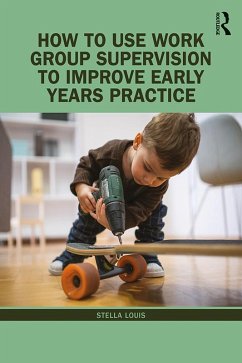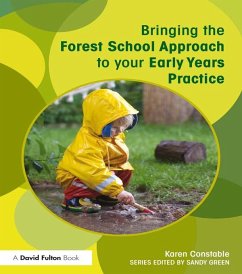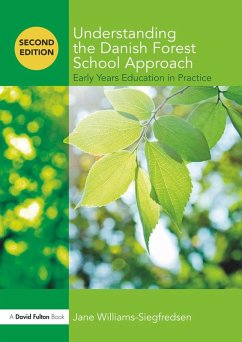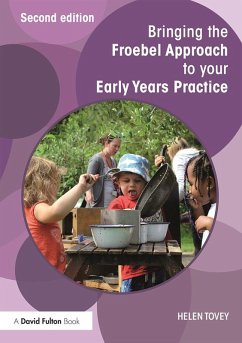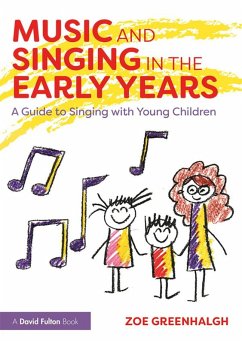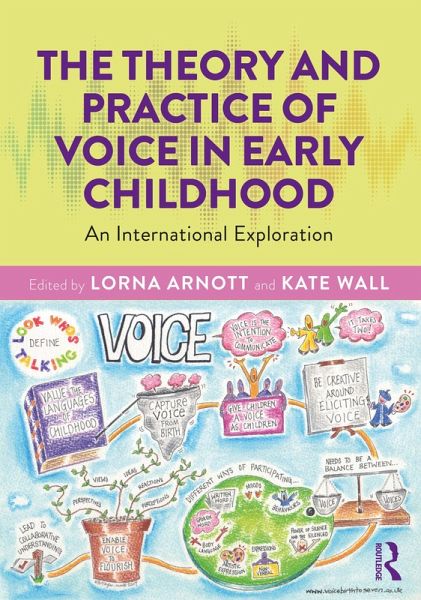
The Theory and Practice of Voice in Early Childhood (eBook, PDF)
An International Exploration
Redaktion: Arnott, Lorna; Wall, Kate
Versandkostenfrei!
Sofort per Download lieferbar
25,95 €
inkl. MwSt.
Weitere Ausgaben:

PAYBACK Punkte
13 °P sammeln!
Seeing young children as competent and capable social actors, The Theory and Practice of Voice in Early Childhood looks at how we can better understand young children's perspectives. Drawing on the 'Look Who's Talking' project, it focuses on the eight talking point posters: voice, democracy, culture, listen with purpose, space and place, skills and tools, enable and build capacity to help readers critically reflect on what voice means to them and for the children with whom they work.Combining the work of scholars and academics with front line workers and practitioners, each section groups two ...
Seeing young children as competent and capable social actors, The Theory and Practice of Voice in Early Childhood looks at how we can better understand young children's perspectives. Drawing on the 'Look Who's Talking' project, it focuses on the eight talking point posters: voice, democracy, culture, listen with purpose, space and place, skills and tools, enable and build capacity to help readers critically reflect on what voice means to them and for the children with whom they work.
Combining the work of scholars and academics with front line workers and practitioners, each section groups two of the posters and provides an overview of the key theory followed by international case studies to illustrate how this thinking might be translated into practice. The book looks at all aspects of children's voice and how to ensure that all children, including those traditionally viewed as too young, with special needs or too disengaged, have a voice.
Including reflections and suggesting points for exploration and dialogue between practitioners, families and children, this will be valuable reading for those who wish to make the ideological principles of children's voice a practical reality.
Combining the work of scholars and academics with front line workers and practitioners, each section groups two of the posters and provides an overview of the key theory followed by international case studies to illustrate how this thinking might be translated into practice. The book looks at all aspects of children's voice and how to ensure that all children, including those traditionally viewed as too young, with special needs or too disengaged, have a voice.
Including reflections and suggesting points for exploration and dialogue between practitioners, families and children, this will be valuable reading for those who wish to make the ideological principles of children's voice a practical reality.
Dieser Download kann aus rechtlichen Gründen nur mit Rechnungsadresse in A, B, BG, CY, CZ, D, DK, EW, E, FIN, F, GR, HR, H, IRL, I, LT, L, LR, M, NL, PL, P, R, S, SLO, SK ausgeliefert werden.





